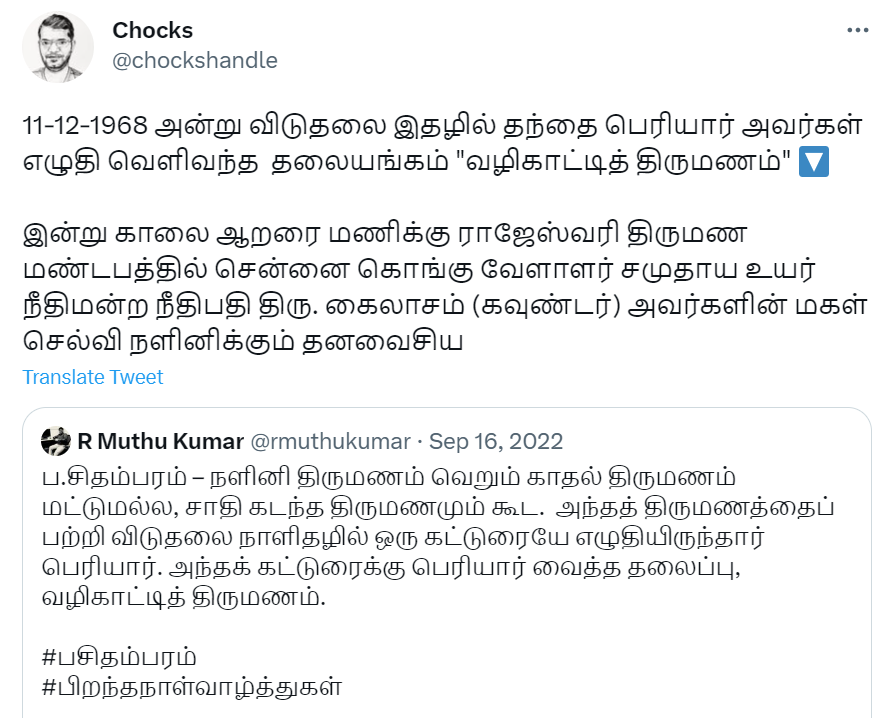In this interview @RangarajPandeyR asked @jsaideepak why Justice Party wanted Govt Control of Temples, as they were the rich people administering temples. Here is some history. In early 19th century EIC had nominal control over temples, till it relinquished in 1863 by Act XX 1/n 
https://twitter.com/ChanakyaaTv/status/1442881391214018560

The temples became one of the power centres. Where there was no Zamindar, Pandarasandhi, rich and powerful people got themselves associated with temples. 2/n 

The financial power of Temples were so great that invariably the politicians got involved. To get an idea of the Temple wealth, some of the big temples and adheenams had lot of property and money. 3/n 

Because of the lacunae in the Act XX, the temple and its properties were not managed well and it was very difficult to take a legal recourse. 4/n 

In 1908 Code of Civil Procedure opened a window for taking the temple administration matters to court. Some battles were fought in the court after this. 5/n 

Dharmarakshana Sabha whose members were identified as the "Mylapore gang" in later stages, used the various provisions of law to rid the temples of sin. This infact ruffled a few feathers and in a way was responsible for the political developments of future 6/n 

S.I.P.A the fore-runner to Justice party was particularly unhappy with the Dharmarakshana Sabha and petitioned against its activities and was "against" any legislative interference in temple management. 7/n 

And all this changed after Justice party "secured office". N.A.V. Somasundaram Pillai helped draft the Justice Ministry's temple legislation. This is how a party that was against temple legislation itself passed laws to control the temple properties. 

Before concluding this thread, it needs to be re-iterated that social justice could not have been the reason for legislating temple control because even prior to it, the control of temples were with powerful and rich landowners. n/n 

• • •
Missing some Tweet in this thread? You can try to
force a refresh










